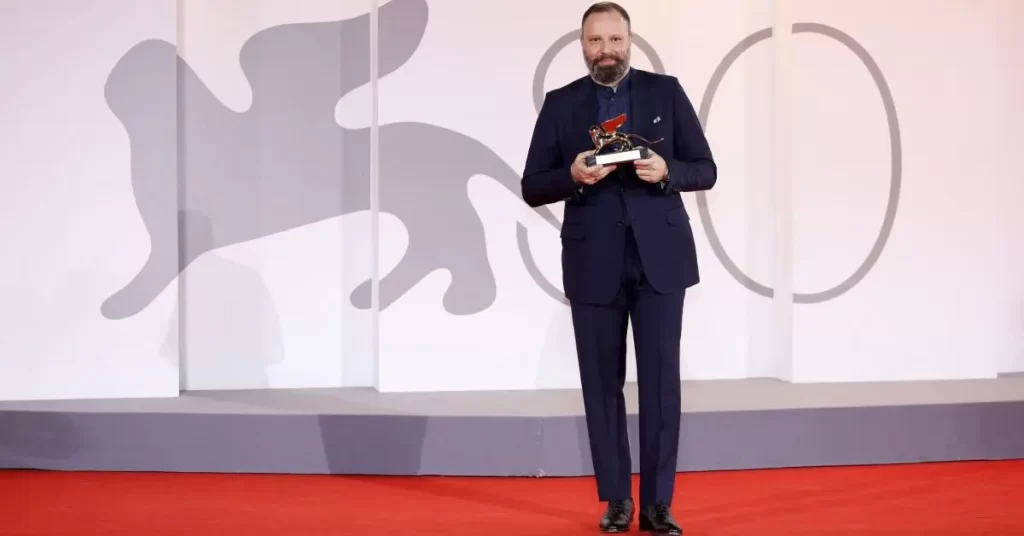Emma Stone’s ‘Poor Things’ Awarded Golden Lion At 80th Venice Film Festival, Despite Hollywood Strikes
In the 80th Venice Film Festival marred by the absence of Hollywood glitz due to ongoing writers and actors strikes, “Poor Things,” a film celebrating Victorian-era female empowerment, emerged as the shining star. The movie, based on Alasdair Gray’s 1992 novel, clinched the prestigious Golden Lion award, often considered a harbinger of Oscar success. Directed by Yorgos Lanthimos and featuring the talented Emma Stone, who also played a pivotal role as a producer, the film tells the captivating tale of Bella Baxter. Revived by a scientist, Bella embarks on a whirlwind journey, breaking free from societal norms of her time alongside a cunning lawyer.
Director Yorgos Lanthimos, clutching the coveted Golden Lion prize, acknowledged Stone’s indispensable contribution, stating, “This film is her, in front and behind the camera.” Stone, although absent from the festival, was instrumental in bringing the character of Bella Baxter to life, both in front of and behind the lens.
“Poor Things” stood tall among the competition, overshadowing other entries that highlighted Europe’s pressing issues. Matteo Garrone’s “Io Capitano (Me Captain)” depicted the harrowing journey of two young boys from Dakar, Senegal, to European shores, shedding light on the migration crisis. Garrone’s film not only won him the best director award but also earned young Seydou Sarr the accolade for best young actor.
Another poignant narrative, “Green Border” by Agnieszka Holland, delved into Europe’s migration crisis along the Polish-Belarus border. The film, which won the Special Jury Prize, emphasized the plight of individuals stripped of dignity and human rights, resonating deeply with the audience. Holland’s powerful message urged society to confront this humanitarian crisis, highlighting the urgency of the situation.
In the realm of outstanding performances, Peter Sarsgaard’s portrayal in “Memory,” a film exploring high school reunions, earned him the title of best actor. Sarsgaard used his acceptance speech to draw attention to the ongoing strikes and the looming threat of artificial intelligence encroaching upon the film industry. He emphasized the essence of human connection, warning against the potential consequences of allowing technology to overshadow the sacred human experience.
On the female front, Cailee Spaeny’s exceptional performance in “Priscilla,” a film by Sofia Coppola delving into the private life of Priscilla and Elvis Presley, earned her the coveted title of best actress. Spaeny’s portrayal captured the nuances of the character, leaving a lasting impression on both the jury and the audience.
The esteemed jury, chaired by Damien Chazelle and comprising Saleh Bakri, Jane Campion, Mia Hansen-Løve, Gabriele Mainetti, Martin McDonagh, Santiago Mitre, Laura Poitras, and Shu Qi, faced the daunting task of evaluating these cinematic masterpieces. Each film presented a unique perspective, shedding light on different facets of the human experience and societal challenges.
In the face of industry strikes that threatened to dampen the festival’s spirit, these filmmakers and actors persevered, delivering exceptional performances that resonated deeply with the audience. Despite the absence of Hollywood glamour, the 80th Venice Film Festival became a platform for powerful storytelling, showcasing the resilience and creativity of the film industry in the face of adversity.
As the curtains closed on the festival, “Poor Things” stood tall as a testament to the power of storytelling, female empowerment, and the collaborative spirit of filmmakers. The accolades bestowed upon this film, alongside other remarkable entries, highlighted the industry’s ability to transcend challenges and continue inspiring audiences worldwide. The 80th Venice Film Festival will be remembered not only for its exceptional films but also for the resilience and determination of the filmmakers and actors who brought these stories to life against all odds.



